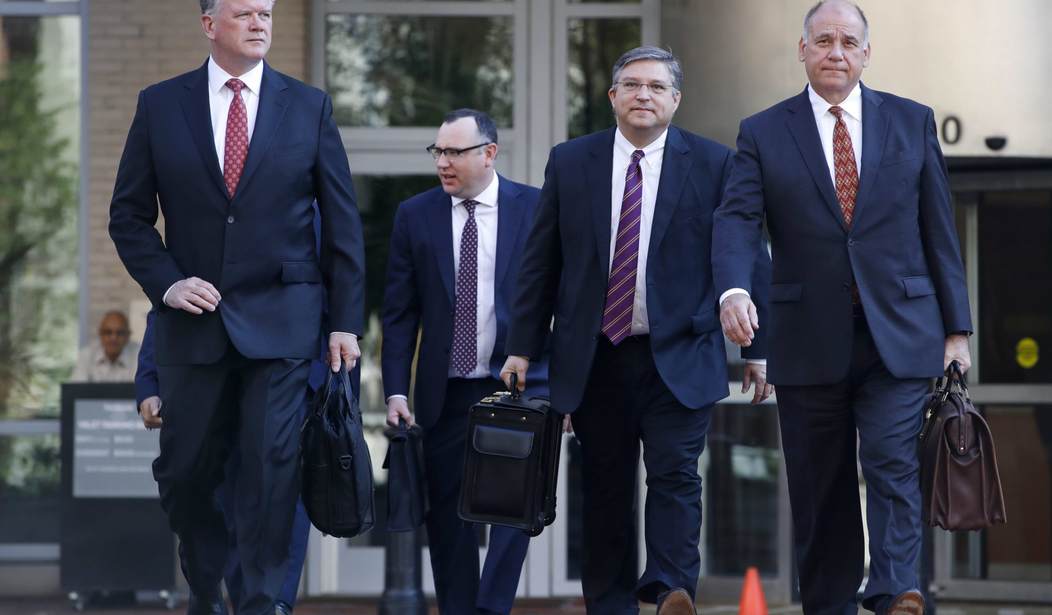WASHINGTON — The defense team for former Trump campaign chairman Paul Manafort wrapped up their case just before noon today — opting not to call any witnesses or present their own case.
“No, sir,” Manafort replied when asked by the judge if he’d like to take the stand in his own defense.
Judge T.S. Ellis III also rejected a motion from the defense to dismiss bank fraud charges against Manafort, meaning that after closing arguments, which begin Wednesday morning, the case goes to the jury of six women and six men.
After two weeks of testimony and more than two dozen witnesses taking the stand as special counsel Robert Mueller’s team laid out their case, the prosecution wrapped up their arguments Monday.
Those witnesses included Manafort’s former deputy, Rick Gates, who testified for two and a half days.
Gates testified that he committed crimes with Manafort, including concealing offshore accounts to avoid reporting them to the U.S. government at tax time and claiming false income to get loans. He also admitted to embezzling from his former employer by turning in false expense reports.
Gates struck a deal with Mueller in February, pleading guilty to one count of conspiracy against the United States and one count of making false statements to the FBI.
Manafort was on Trump’s campaign team from March to August 2016, starting as a delegate-wrangler and serving as campaign chairman in the last three months. Gates came on board the Trump campaign with Manafort and stayed for the duration of the campaign, later serving as deputy chairman for Trump’s inaugural committee and then starting a pro-Trump PAC.
In this trial, Manafort faces 18 charges for financial crimes that carry a maximum penalty of 305 years behind bars. Next month in the D.C. Circuit, he faces charges of operating as an unregistered foreign agent and lying to investigators.
The last witness Monday was Treasury Department senior special agent Paula Liss, who said she had not found any evidence that Manafort’s firms had admitted to keeping foreign bank accounts. Liss, a money laundering specialist with the Financial Crimes Enforcement Network, testified the first week of the trial, as well.
One of the loans Manafort received despite submitting false information was from Federal Savings Bank; two employees were granted immunity in exchange for their testimony.
Stephen Calk, founder and CEO of the mortgage lender, was a campaign economic adviser to Donald Trump.
After Manafort left the Trump campaign and Gates remained, Gates said last week, Manafort continued to contact him about related matters, including seeking favors for Calk including tickets to the inauguration and a plum administration post. On Nov. 24, 2016, Manafort emailed Gates: “We need to discuss Stephen Calk for Sec of Army. I hear the list is being considered this weekend.”
On Monday, prosecutors admitted into evidence a Nov. 30, 2016, email from Manafort to President Trump’s son-in-law Jared Kushner, arguing that Calk was among those who deserved “major appointments” as the new administration took shape.
“His background is strong in defense issues, management and finance. His preference is Secretary of the Army,” Manafort wrote, suggesting specific Treasury or Commerce positions if Calk couldn’t get the Army secretary post; Kushner replied, “On it!” Calk had drafted a list of administration positions and ambassadorships he’d prefer “in rank order.”
The defense motion to dismiss charges related to these loans argued that there wasn’t evidence the lenders relied on the loan documents containing false information in deciding to lend money to Manafort.
James Brennan, a vice president at Federal Savings Bank, testified Monday that he’d inflated Manafort’s loan rating to borrow $16 million under pressure from Calk.









Join the conversation as a VIP Member